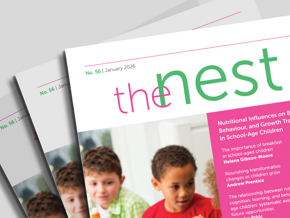One in five UAE infants and toddlers at risk of becoming overweight, study finds
About one in five infants and toddlers in the UAE are at risk of becoming overweight due to poor diet and nutrition. Young children across the Gulf are also not eating the recommended amount of fruit or milk required for healthy growth, research by UAE University, University of Sharjah and the American University of Beirutfound. The Feeding Infants and Toddlers Study looked at Emirati and other Arab infants and toddlers aged 0-2 years in Abu Dhabi, Dubai, and Sharjah.
The crucial first 1,000 days of life is a period critical to forming dietary habits that define health throughout our lifetime
Professor Al Dhaheri, UAE University
“Studies like FITS are essential to establishing a good level of understanding on nutrition and dietary patterns of infants and children,” said Professor Ayesha Salem Al Dhaheri, associate provost for student affairs at UAE University.
“The crucial first 1,000 days of life is a period critical to forming dietary habits that define health throughout our lifetime.
“These concrete findings will help guide the formulation of evidence-based interventions, as well as nutrition-related policies for infants and young children in the country.”
The research found just 16 per cent of young children consumed the recommended amount of fruit, with fewer than half eating enough dairy.
It also found 18 per cent were at risk of becoming overweight and 7 per cent were already overweight or obese.
UAE University says the first 1,000 days of nutrition for a child is key to forming dietary habits throughout their lifetime. Getty
Almost half of infants aged 6-12 months had an iron deficiency while 53 per cent of toddlers between 1 and 2 years old did not have enough Vitamin D in their diet.
A further 49 per cent did not meet recommendations for lean meat and beans consumption.
The study was conducted in partnership with Tathqeef, a medical education centre, and Nestlé Research, which designed the methodology and covered its financing.
It looked at data drawn from a large sample of parents or caregivers of infants, toddlers and pre-schoolers.
Results will enable policy makers and carers to learn about the nutrient intakes and nutritional needs of infants, toddlers and young children in the region, and to understand what foods are being consumed at different ages when the diet of young children is rapidly changing.
In 2016, a regional review into micronutrient deficiencies in the diet of infants and toddlers was launched in partnership with Nestlé Research in Switzerland and AUB.
Findings from Saudi Arabia, the UAE, Lebanon, and Jordan provided insights on gaps and challenges in nutrition and diet.
It showed a triple burden of malnutrition, where overweight, under nutrition, and micronutrient deficiencies co-existed.
Since then, a sugar tax has been implemented in the UAE and Saudi Arabia to curb intake and take action against childhood obesity.
Doctors said more younger children put on weight during the pandemic, compared to years before, with fewer options to play outside with friends and easy access to fast food.
“We have seen more cases of childhood obesity during the pandemic,” said Dr Anuradha Ajesh, a pediatrician at Bareen International Hospital in MBZ City, Abu Dhabi.
“This could be due to a reduction in outside play and also a reliance on more convenient food that is usually highly processed with sugars and fats.
“Children aged 1 to 5 should have 180 minutes of active play every day to ensure they have good development.”
If you liked this post you may also like
